NI 100: Michael Collins' diaries donated to Irish state
- Published
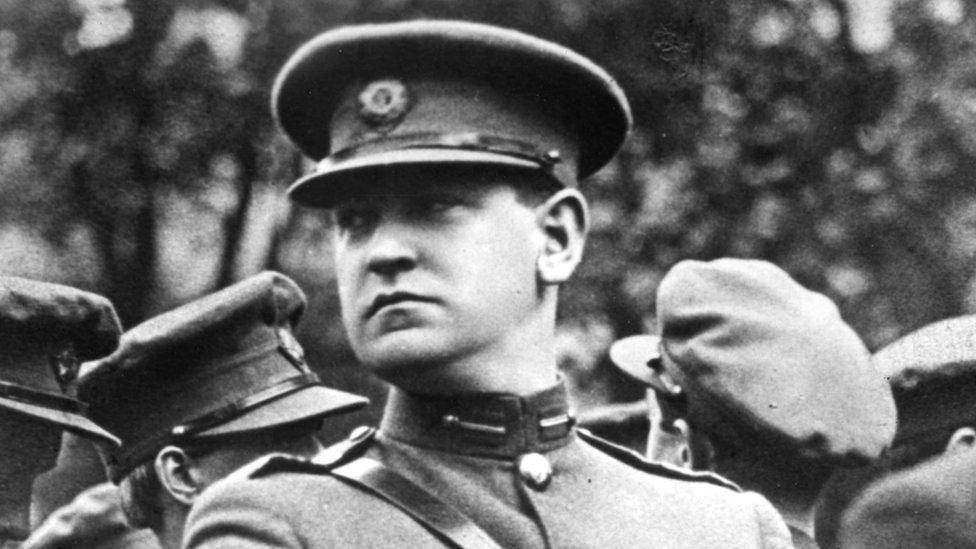
Michael Collins was a politician and military leader in revolutionary Ireland
The contents of the diaries of Irish revolutionary leader Michael Collins have been given "to the Irish people" ahead of the centenary of his death.
Collins rose to prominence during the Irish War of Independence and became one of the most influential figures in the founding of the Irish Free State.
He was briefly both the leader of the new state and also commander-in-chief of its army until his death in 1922.
His diaries have been loaned to the Irish National Archives by his family.
The diaries will stay at the archives on "long-term loan" before the original books are returned to Collins' native County Cork next August to mark the centenary of his death.
Members of the Collins family presented the diaries to the Taoiseach (Irish Prime Minister) Micheál Martin and other minsters in County Cork on Monday.
'Major historical importance'
Mr Martin said the diaries, which document the last four years of Collins' life, "tell the story of one of the most turbulent periods in our history".
"There are many new discoveries that will be revealed through the diaries which will now become part of the national collection at the National Archives.
"This will allow the public, scholars and researchers to learn much more about the events leading up to and following the foundation of the state," he added.
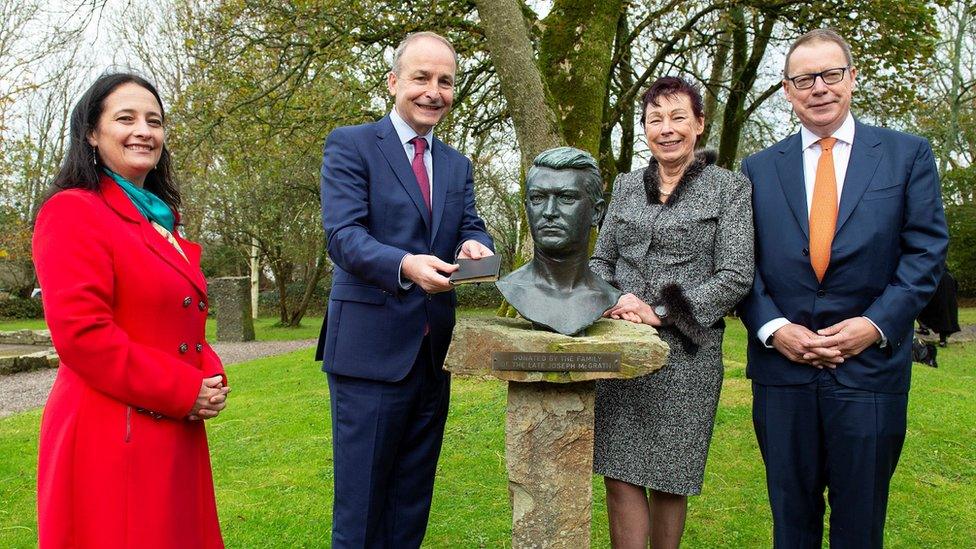
The diaries were presented to Taoiseach Micheál Martin and other ministers at Michael Collins' birthplace in County Cork
The five books will now undergo conservation and preservation treatment and their contents will be digitised to enable public access, according to a government statement.
The diaries record details of Collins' meetings and appointments during the most significant events of his life - the War of Independence, the Anglo-Irish Treaty negotiations and the outbreak of the Irish Civil War.

Who was Michael Collins?
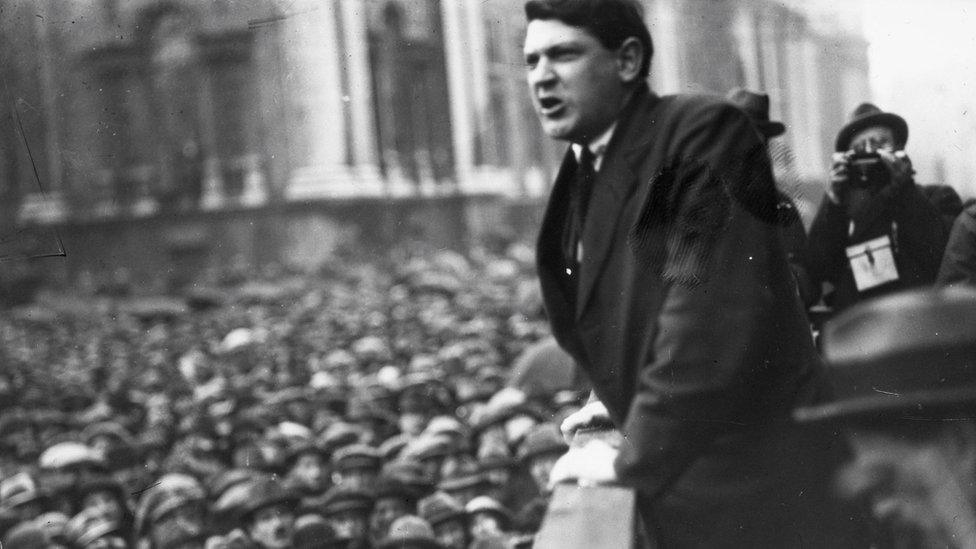
Michael Collins addressing an election rally
Collins was a prominent republican who was born near Clonakilty in County Cork in 1890.
During the 1919-1921 War of Independence, he held the dual roles of IRA director of intelligence and minister of finance in Ireland's provisional government.
When a truce was called after two-and-a-half years of guerrilla warfare, Collins led a delegation to London to hold peace negotiations with the British government.
The talks led to the signing of the Anglo-Irish Treaty in December 1921 - a controversial settlement that created a new Irish Free State but caused a split in the republican movement.
Collins became chairman of the Irish Free State's provisional government, as well as assuming control of its new National Army.
However, divisions over the treaty led to the Irish Civil War, and Collins was assassinated within months by anti-treaty Irish forces at an ambush in rural County Cork on 22 August 1922.

Collins' role as IRA director of intelligence meant that his movements were often secretive in nature and the books contain details "which have never been seen before", according to the government statement.
The director of the National Archives told Irish broadcaster RTÉ, external that one diary entry from May 1918 describes Collins' evading arrest and his plan to go "on the run" the following day.
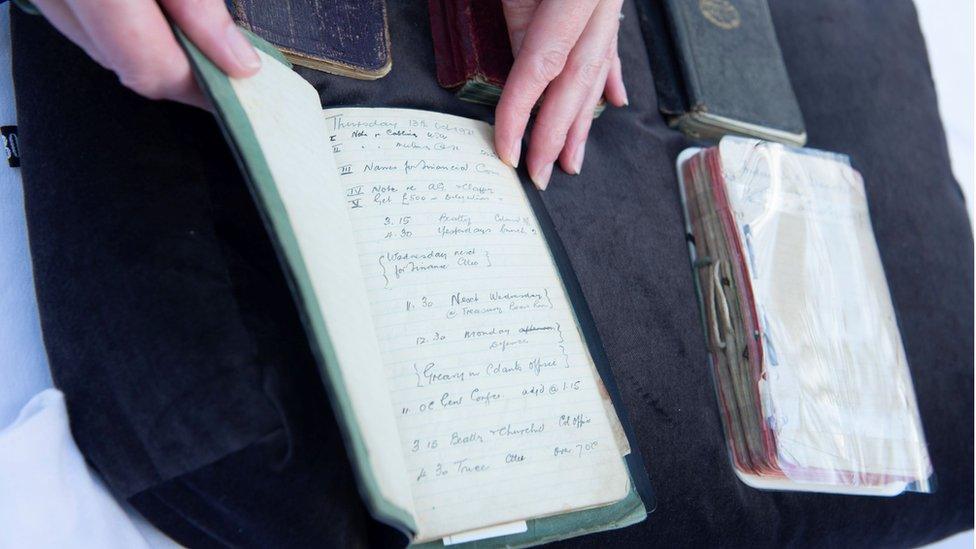
The diaries contain details of Collins' movements and meetings
Collins was unmarried and had no children of his own, but was survived by his siblings and their descendants.
His work diaries were kept by his older brother Johnny Collins, who bequeathed them to his son Liam Collins.
In a statement, Liam Collins' children said: "We are delighted on his behalf to give these important records to the Irish people through the good offices of the National Archives.
"The family hope to involve Clonakilty in the public presentation of these diaries. This would be very important to our father."
Monday's presentation ceremony was also attended by the Minister for Foreign Affairs Simon Coveney and Culture Minister Catherine Martin.
'Unique insight'
"As we approach the centenary of Michael Collins' death in August 2022, there is a renewed and increased interest in him," Mr Coveney said.
"These diaries provide a unique insight into an extraordinary life and give details of events which have never before been made public."
Ms Martin said: "They are an important legacy for the state in the context of the decade of centenaries marking such a significant figure in the history of the state."
"My role as minister with responsibility for commemorating this complex period in our history is that it is remembered appropriately, meaningfully and sensitively."
Related topics
- Published28 September 2021
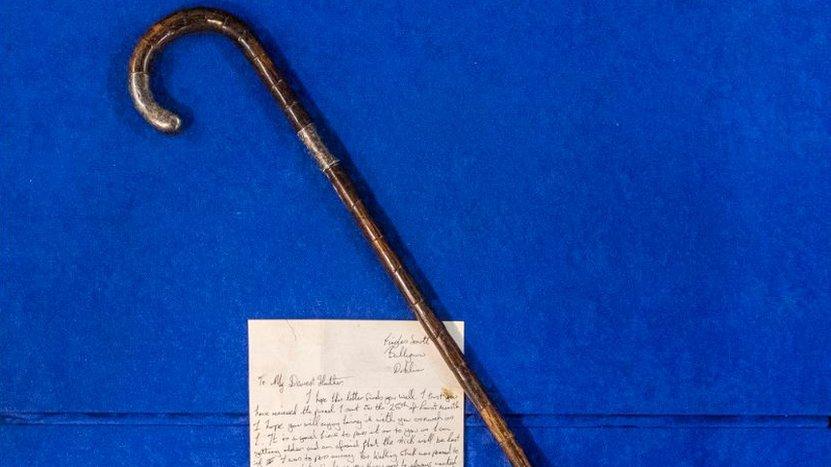
- Published27 February 2021
